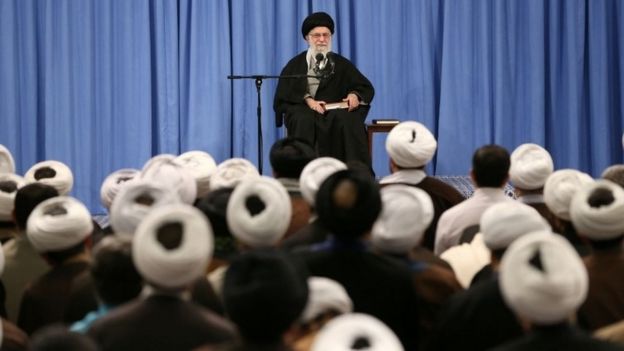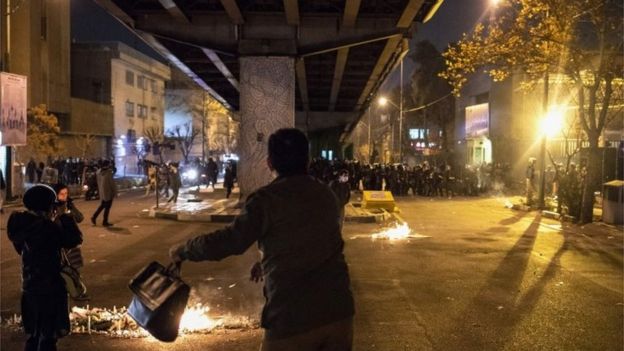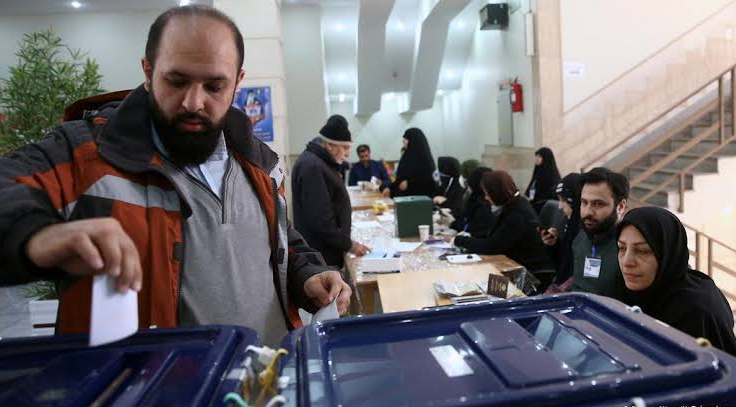Iran has seen the lowest turnout in a parliamentary election since the 1979 revolution, with 42.6% of eligible voters casting their ballots.
Officials had banned thousands of contenders, many of them reformers.
Hardliners are set for big gains in the first vote since US sanctions resumed.
Supreme Leader Ayatollah Ali Khamenei described Friday’s turnout as stunning, as he said Iran’s enemies had tried to put people off voting by exaggerating the coronavirus outbreak.
“This negative propaganda about the virus began a couple of months ago and grew larger ahead of the election,” he said, according to his official website Khamenei.ir.
“Their media did not miss the tiniest opportunity for dissuading Iranian voters and resorting to the excuse of disease and the virus.”
Meanwhile the outbreak has worsened, with 43 confirmed cases and eight deaths.
Schools, universities and cultural centres across 14 provinces have been closed. Iraq, Pakistan, and Turkey have closed their borders with Iran, and Afghanistan has suspended air and road travel to and from Iran.
What do the results show?
Interior Minister Abdolreza Rahmani Fazli said the low turnout was “completely acceptable” after Iran experienced a coronavirus outbreak, bad weather and recent protests as well as the shooting down of a Ukrainian passenger plane in January.

He said the turnout in Tehran was just 25.4%, with conservatives loyal to Ayatollah Khamenei winning all 30 seats in the capital.
Former Revolutionary Guards commander Mohammad Bagher Qalibaf topped the list, and is expected to become the next parliamentary speaker.
Although vote counting is still going on in some cities, that success is expected to be repeated throughout the country. The conservatives already have enough seats to form a majority in the 290-seat chamber.
The outcome will politically weaken President Hassan Rouhani, a relative moderate.
Several thousand contenders – including 90 mostly reformist members of the current Majlis – were disqualified from standing by the Guardian Council, a vetting committee loyal to Mr Khamenei.
Critics of Iran’s rulers had called on citizens to boycott the polls as a way of showing their opposition to what they say is widespread repression of human rights and intolerance of dissent.
What is the background to these elections?
The poll is the first since the US renewed sanctions over Iran’s nuclear programme, battering its economy.
The Islamic republic has been at loggerheads with the US and much of the West since a revolution in 1979 brought a radical Shia Muslim leadership to power.

Mr Khamenei said voting in the parliamentary elections was a “religious duty” which would show steadfastness in the face of US efforts to isolate and pressurise the country into changing.
Tensions between Iran and the US have soared since 2018 when President Donald Trump abandoned a multi-country agreement, which lifted sanctions in exchange for curbs on Iran’s nuclear programme.



